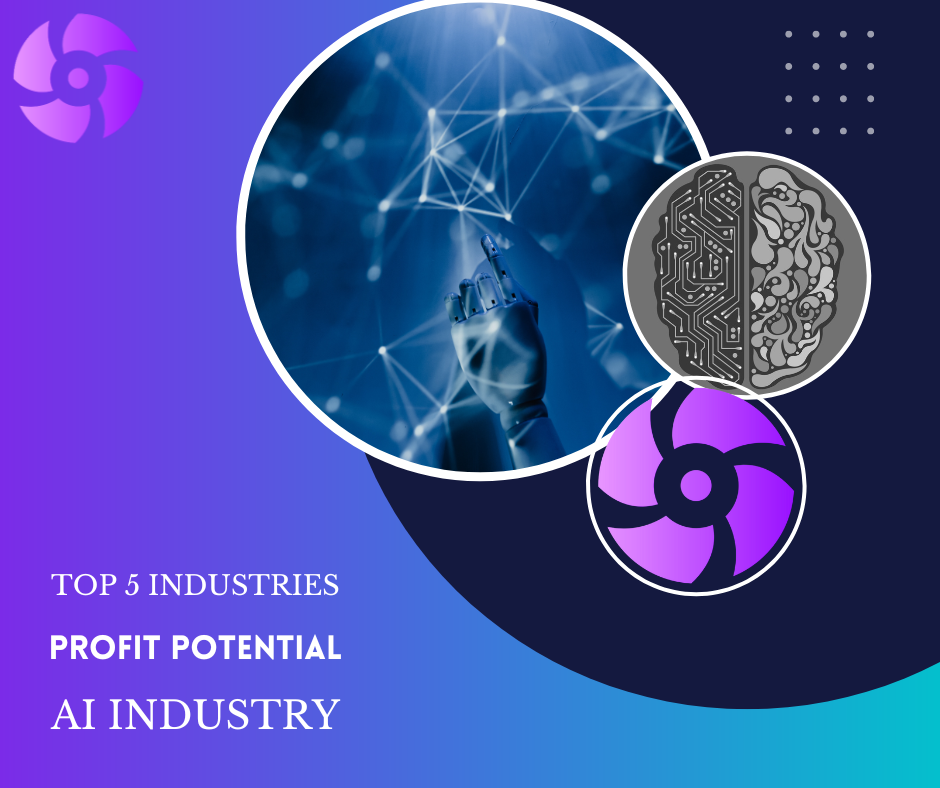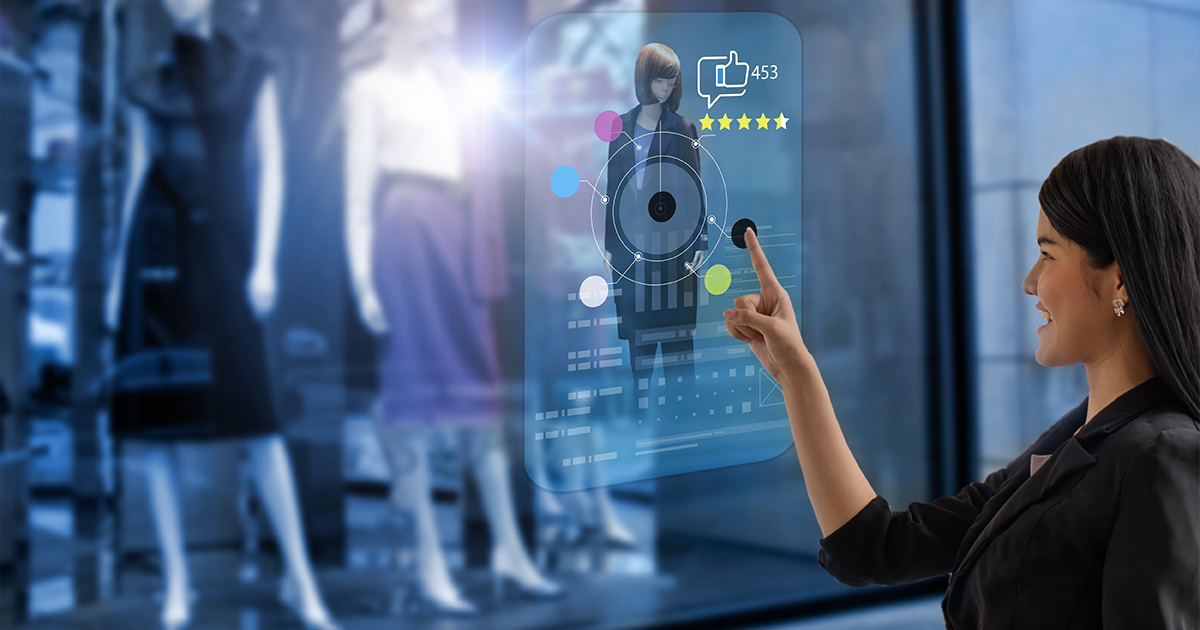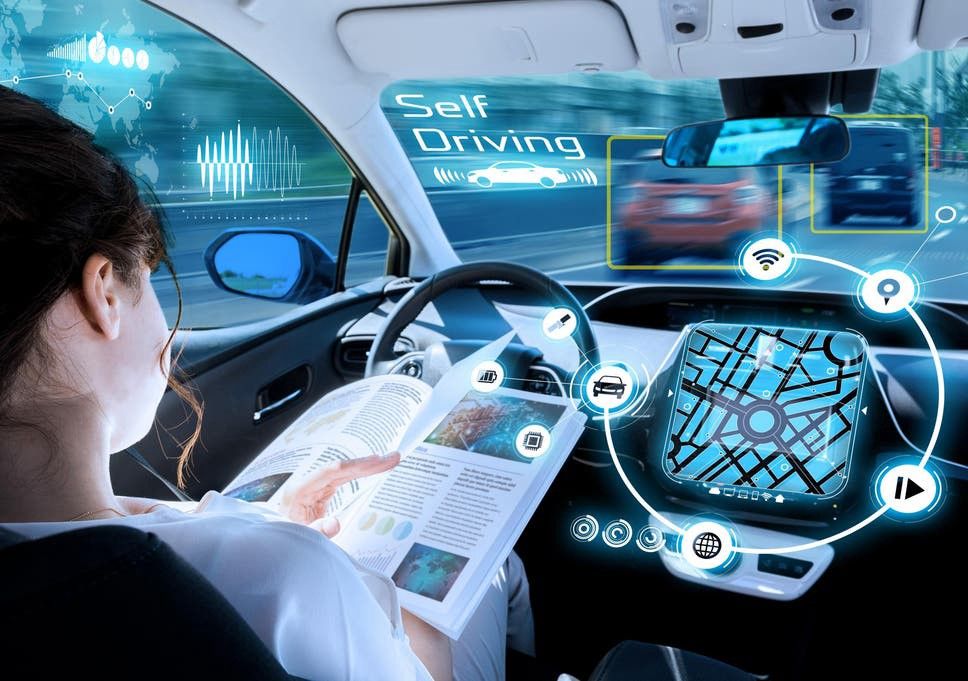The Top 5 Industries for AI Profit Potential
Looking to make money with AI? In this article, we explore the top five industries for AI profit potential. From healthcare to finance to retail and beyond, we examine how AI is optimizing operations, streamlining processes, and driving profits in these sectors.

Artificial intelligence (AI) is revolutionizing the way we do business and make money.
From healthcare to finance to retail and beyond, AI is transforming industries and creating new opportunities for profits.
In this article, we explore the top five industries for AI profit potential and examine how AI is helping companies in these sectors optimize operations, streamline processes, and maximize profits.
If you're interested in using AI to drive your business forward and boost your bottom line, this article is a must-read. Don't miss out on the exciting world of AI business – read on to learn more.

Healthcare: Improving Patient Outcomes and Reducing Costs
AI can potentially help improve patient outcomes and reduce costs in the healthcare industry in several ways:
- Analyzing medical images: AI algorithms can be trained to analyze medical images, such as CT scans and X-rays, and identify abnormalities or potential diseases. This can help healthcare professionals make more accurate diagnoses and treatment plans.
- Predicting patient outcomes: AI can be used to analyze patient data, such as medical history, test results, and vital signs, to predict patient outcomes and identify potential risks. This can help healthcare professionals take preventive measures to improve patient outcomes.
- Assisting with diagnoses: AI can be used to analyze patient symptoms and other data to assist with making diagnoses. For example, an AI system could analyze a patient's symptoms and medical history and suggest a list of possible diagnoses for a healthcare professional to consider.
- Optimizing treatment plans: AI can be used to analyze patient data and suggest the most effective treatment plans. This can help healthcare professionals tailor treatment plans to the specific needs of each patient and potentially improve patient outcomes.
- Reducing costs: AI can potentially help reduce costs in the healthcare industry by automating certain tasks, such as image analysis and data analysis, which can reduce the need for manual labor. AI can also potentially help reduce costs by identifying inefficiencies and suggesting ways to improve processes.
In conclusion, AI has the potential to significantly improve patient outcomes and reduce costs in the healthcare industry.
By analyzing medical images, predicting patient outcomes, assisting with diagnoses, optimizing treatment plans, and automating certain tasks, AI can help healthcare professionals provide better care to patients and make the healthcare system more efficient.
While there are certainly challenges and ethical considerations to be addressed in the use of AI in healthcare, the potential benefits make it an exciting area for further development and investment.

Finance: Automating and Enhancing Financial Analysis
AI can potentially help automate and enhance financial analysis, and it's not hard to imagine how:
- Analyzing financial data: AI algorithms can be trained to analyze large amounts of financial data, such as stock prices, market trends, and economic indicators, and identify patterns and trends that may not be immediately apparent to humans. This can help financial analysts make more informed investment decisions.
- Making investment recommendations: Some AI systems can analyze financial data and make investment recommendations based on their analysis. These recommendations can be based on various factors, such as the risk profile of the investor and the potential return on investment.
- Identifying fraud: AI can be used to analyze financial transactions and identify patterns or anomalies that may indicate fraudulent activity. This can help financial institutions detect and prevent fraud, which can save them significant amounts of money.
- Enhancing risk management: AI can be used to analyze financial data and identify potential risks, such as market fluctuations or credit risk. This can help financial institutions better manage risk and make more informed decisions about investments and loans.
- Automating tasks: AI can be used to automate tasks such as data entry and analysis, which can free up financial analysts to focus on more complex tasks and decision-making. This can potentially improve the efficiency of financial analysis and reduce the need for manual labor.
In summary, AI has the potential to significantly enhance and automate financial analysis by analyzing financial data, making investment recommendations, identifying fraud, managing risk, and automating tasks.
As the use of AI in finance continues to evolve, it is likely that it will become an increasingly important tool for financial professionals looking to make informed decisions and maximize profits.

Retail: Personalizing Shopping Experiences and Optimizing Operations
AI can potentially help personalize shopping experiences and optimize operations in the retail industry.
If you want to know how then consider the following:
- Personalizing shopping experiences: AI can be used to analyze customer data, such as purchase history and browsing behavior, to personalize shopping experiences and make recommendations to customers. For example, an AI system could analyze a customer's purchase history and suggest similar or complementary products to them.
- Optimizing pricing and inventory management: AI can be used to analyze sales data and identify trends, such as the demand for certain products or the optimal price points for different products. This can help retailers make informed decisions about pricing and inventory management to maximize profits.
- Improving customer service: AI can be used to assist with customer service tasks, such as answering frequently asked questions or providing personalized recommendations to customers. This can help retailers improve customer satisfaction and loyalty.
- Optimizing marketing campaigns: AI can be used to analyze customer data and identify patterns that can inform targeted marketing campaigns. This can help retailers reach the right customers with the right products and potentially increase sales.
- Streamlining operations: AI can be used to automate tasks such as data entry and analysis, which can help retailers streamline operations and reduce the need for manual labor. This can potentially improve the efficiency of retail operations and reduce costs.
So as you can see, AI has a lot on its plate right now even in areas where you usually don't even consider it.
It is certainly going to be a heavy hitter going forward, conditioning the way we do business in every way possible - Evolve or die.

Manufacturing: Streamlining Production and Improving Quality Control
AI can potentially help streamline production and improve quality control in the manufacturing industry.
Here are five areas we can anticipate AI will impact the most:
- Optimizing production processes: AI can be used to analyze production data and identify bottlenecks or inefficiencies in the production process. This can help manufacturers streamline their operations and increase efficiency.
- Improving quality control: AI can be used to analyze data from quality control inspections and identify patterns or trends that may indicate potential issues. This can help manufacturers identify and address quality issues before they become significant problems.
- Reducing waste: AI can be used to optimize production processes and identify opportunities for waste reduction. This can help manufacturers reduce costs and increase profits.
- Enhancing predictive maintenance: AI can be used to analyze data from machinery and equipment to predict when maintenance may be needed. This can help manufacturers schedule maintenance in a timely manner and reduce downtime.
- Enhancing product design: AI can be used to analyze data from customer feedback and market trends to inform product design decisions. This can help manufacturers create products that better meet the needs of customers and potentially increase sales.
Just because these areas are the only ones in this article doesn't mean there aren't 100+ other ways AI can help though.
The truth is, AI technology is still taking its early steps, and we cannot fathom what will happen going forward.

Transportation: Optimizing Routes and Developing Self-Driving Cars
What about transportation?
Well, with Tesla and other brands we already got a glimpse of how AI will help us logistically as well.
Self-driving cars are becoming a reality, and it's only a matter of time until they become mainstream, but consider these ways AI can impact you:
- Optimizing routes for delivery vehicles: AI can be used to analyze data such as traffic patterns and delivery schedules to identify the most efficient routes for delivery vehicles. This can help transportation companies reduce fuel costs and improve delivery times.
- Improving traffic flow: AI can be used to analyze traffic data and identify bottlenecks or potential issues that may cause traffic congestion. This can help transportation authorities develop strategies to improve traffic flow and reduce delays.
- Developing self-driving cars: AI can be used to enable self-driving cars to navigate roads and make decisions based on their surroundings. This can potentially reduce the need for human drivers and improve safety on the roads.
- Enhancing public transportation: AI can be used to optimize routes for public transportation, such as buses and trains, and improve the efficiency of these services.
- Improving logistics: AI can be used to optimize the routing of goods and materials during the transportation process, which can help transportation companies reduce costs and improve efficiency.
In this article, we explored the ways in which AI can potentially help improve patient outcomes and reduce costs in the healthcare industry, automate and enhance financial analysis, personalize shopping experiences and optimize operations in the retail industry, streamline production and improve quality control in the manufacturing industry, and optimize routes and develop self-driving cars in the transportation industry.
It is clear that AI has the potential to significantly impact and improve various industries, and it is an exciting area for further development and investment.
However, it is important to also consider the challenges and ethical considerations that come with the use of AI, and to ensure that its use is responsible and benefits society as a whole.

